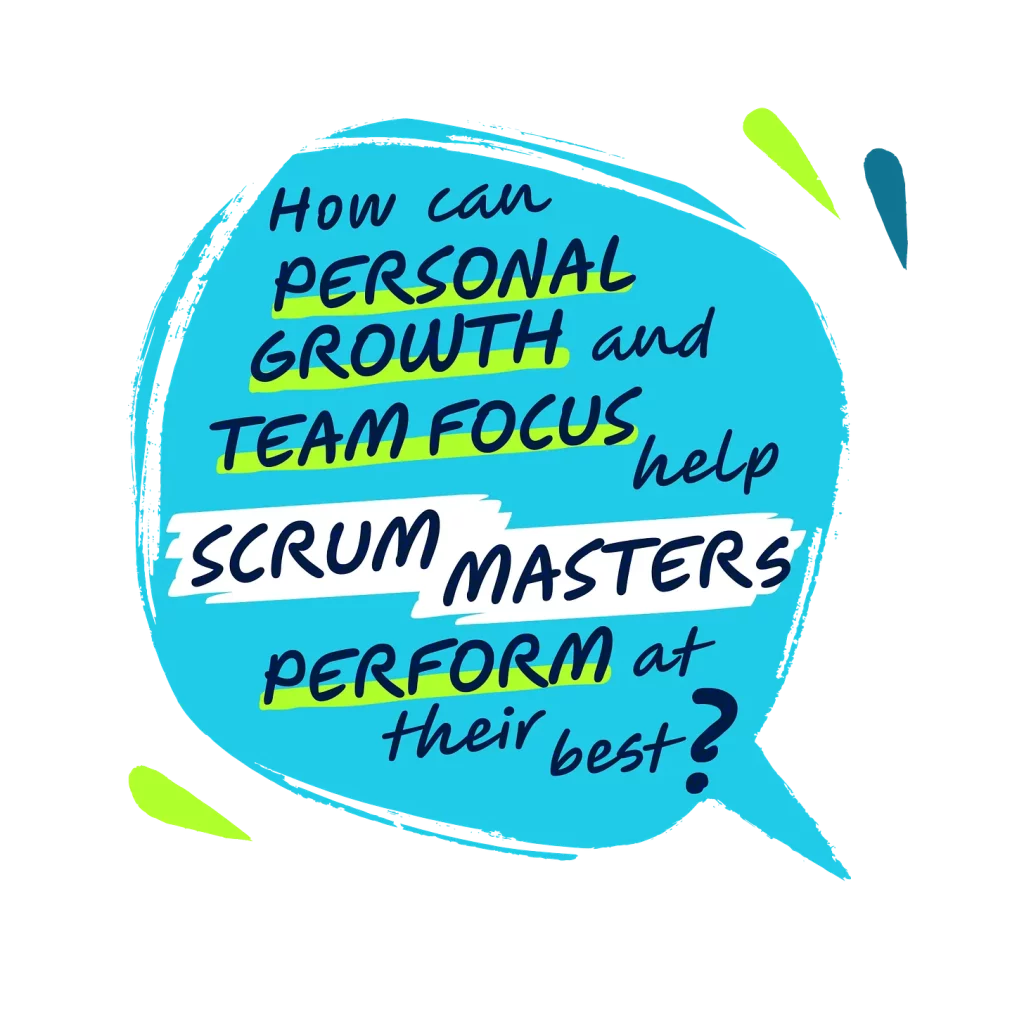A successful Scrum Master fosters a healthy and productive team culture, reflected by the team’s ability to deliver quality products by upholding Scrum and advocating for the team’s needs and growth.
This journey starts with the Scrum Master investing in personal growth.
As a Scrum Master, having the right skills is critical to helping your team succeed.
These skills include being good at coaching and mentoring, which means helping your team grow and learn; having strong communication skills to talk and listen well to the team; and being a leader who supports the team to manage themselves.
Great Scrum Masters will get themselves out of their comfort zone first, aiming to gain knowledge and share knowledge. Seeking continuous improvement and encouraging the team and themselves to improve, they lead by example.
1. Team’s empowerment and autonomy
Encouraging the team to make decisions independently is paramount, fostering a sense of ownership and responsibility for their work. This will lead to continuous learning and skill development and building a cross-functional team capable of handling various challenges independently. You are ultimately contributing to a more robust and self-sufficient team by boosting the team’s confidence and focusing on broader aspects of product building and personal development.
2. Assessing current teams and organisation maturity
Providing guidance and support tailored to the teams and organisations’ current capabilities and needs allows the team and organisation to adapt without becoming overwhelmed.
Advocating for and implementing change in small and manageable increments will establish trust and rapport with the team and stakeholders, demonstrating an understanding of their challenges and perspectives. The Scrum Master should exercise empathy and patience, understanding that change can be challenging and that people and organisations progress at different rates.
3. Don’t change people, change teams
Focus on building strong, cohesive teams where members support and complement each other rather than trying to change team members. Coaching on the benefits of shared responsibility and accountability and facilitating regular opportunities to reflect on team dynamics, processes, and performance will help build resilient, adaptable, and high-performing teams more capable of navigating the complexities of modern product development.
4. Technical curiosity and understanding
Besides possessing a strong understanding of technical aspects, the Scrum Master should stay informed about the latest technologies and advancements that could impact or benefit the team’s way of working or the product. This proactive approach ensures that you are well informed about the emergent team needs, enabling you to be part of a team that develops market-relevant products.
5. Going beyond facilitating events
Engaging in strategic conversations with the team and stakeholders, contributing to long-term visioning and goal setting beyond the scope of routine Scrum events, will move the Scrum Team towards enhancing organisational agility, addressing systemic issues, and promoting an agile mindset across the organisation.
The Scrum Master accountability transcends process facilitation, evolving into a dynamic force that drives team empowerment, organisational maturity, and continuous personal development.
By fostering team autonomy and emphasising the importance of cohesive team dynamics over individual alterations, a Scrum Master nurtures a self-sufficient, resilient team capable of facing complex challenges.
Simultaneously, maintaining a keen interest in technological trends and participating in strategic conversations elevates their contribution, ensuring the team and the organisation remain agile, innovative, and aligned with broader business objectives.
This approach not only propels the team towards excellence but also solidifies the Scrum Master’s role as a pivotal element in the overall team and organisation’s success.


